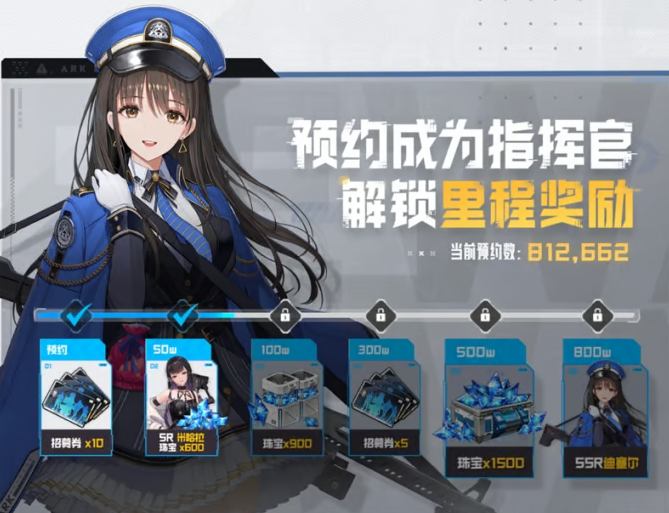China’s Ascendancy in the Global Gaming Market Undermines Korea’s Competitive Edge
Input
Modified
Regulatory Crackdown Spurs Content Innovation in China Chinese Games Hit Record-High Overseas Sales in 2023 Six of Korea’s Top 10 Mobile Titles Now Made in China

Chinese games are increasingly dominating the North American mobile gaming market, with several titles consistently ranking among top-grossing apps. Analysts attribute this performance to the compatibility between casual Chinese mobile games and North American gamers’ preferences for light and accessible gameplay. In contrast, the weakening competitiveness of Korean titles in the same market is prompting growing concern among domestic developers.
Chinese Titles Claim Top Spots in the U.S. Market
According to mobile analytics platform Mobile Index on August 5, Chinese developer FirstFun’s casual title Last War: Survival ranked third in revenue on both the Google Play Store and Apple App Store in the U.S. as of the previous day. The game also secured high rankings in Canada—fifth on Google Play and seventh on the App Store. Since its North American launch in August 2023, Last War: Survival has maintained a strong presence, consistently ranking among the top five highest-grossing games in the region.
Another Chinese title, Whiteout Survival by Century Games, is also performing strongly in North America. As of the previous day, the game placed seventh on the U.S. Google Play revenue chart and ninth on the App Store, while ranking fourth and ninth in Canada, respectively. Century Games’ KingShot, a strategy game launched globally in March this year, has also gained traction, with revenue rankings consistently in the 8th–10th range on both app marketplaces in the U.S. and Canada.
In contrast, while Korean game developers are also targeting the global market, few have seen meaningful success in North America. Only two Korean titles—Shift Up’s RPG shooter Goddess of Victory: Nikke and Krafton’s PUBG Mobile, based on its Battlegrounds intellectual property—ranked among the top 50 highest-grossing mobile games in the region. Goddess of Victory: Nikke currently sits at 19th on the U.S. Google Play Store and 15th in Canada, while PUBG Mobile ranks 45th on the U.S. App Store and 18th in Canada.

Domestic Regulation Spurs Overseas Competitiveness
Paradoxically, one of the key drivers behind the rise of Chinese games abroad has been Beijing’s stringent regulatory stance. The Chinese government’s strict oversight of aggressive monetization schemes has, analysts argue, redirected competition toward content quality and innovation. In December 2023, the National Press and Publication Administration released a draft of new online gaming regulations that severely restrict randomized item mechanics and impose strict spending limits, including a blanket ban on such features for minors.
Although these draft rules have not yet been enforced, they reveal the government’s regulatory orientation. As a result, Chinese developers have pivoted away from exploitative billing models and instead doubled down on storytelling, graphics, and expansive world-building—an approach that has paid off in global markets. According to the 2024 Chinese Games Going Global Research Report by the China Audiovisual and Digital Publishing Association (CADPA), Chinese gaming revenue from overseas markets reached a record $18.557 billion in 2023, marking a 13% year-on-year increase. The U.S. accounted for the largest share at 31%.
Growing Presence in Korea’s Domestic Market
Chinese games are also expanding their footprint in South Korea. In 2023, Chinese titles accounted for more than 30% of mobile game revenue across major app marketplaces in the country (Google Play, Apple App Store, and One Store), a sharp increase from around 20% in previous years. According to mobile analytics firm Sensor Tower, six of the top 10 revenue-generating mobile game publishers in Korea last year were Chinese.
Indeed, the Korean market emerged as a key revenue source for many Chinese games. Last War: Survival and Whiteout Survival derived 21% and 12.8% of their global revenue, respectively, from Korea in 2023—second only to the U.S. Brawl Stars followed with 8.3%, ranking behind only the U.S. and Germany.
Notably, Korea’s Revenue Per Download (RPD) outpaced even that of the U.S. For Last War: Survival, RPD in Korea stood at $46.85, more than double the $20.76 figure in the U.S. Whiteout Survival showed an even wider gap, with Korean RPD at $54.80 compared to $22.07 in the U.S. Brawl Stars likewise had a higher RPD in Korea ($11.95) than in the U.S. ($9.23).
Conversely, the influence of Korean games in China continues to wane. According to the Korea Creative Content Agency, China accounted for 30% of Korea’s total game exports in 2023—the highest share by country but a 4% drop from the previous year, highlighting a clear downward trend. The decline is largely attributed to regulatory hurdles, particularly restrictions on publishing licenses (panhao). Following the deployment of the THAAD missile defense system in 2017 and the ensuing cultural embargo, only two Korean games were granted licenses in China until November 2022.
Although the resumption of license issuance at the end of 2022 allowed some Korean titles to re-enter the Chinese market, they have largely failed to meet expectations amid the rapid evolution of local consumer preferences and intensifying competition. In contrast, Chinese developers have fortified their global standing through large-scale investments and enhanced development capabilities, increasingly overtaking their Korean counterparts in both domestic and international markets.





















